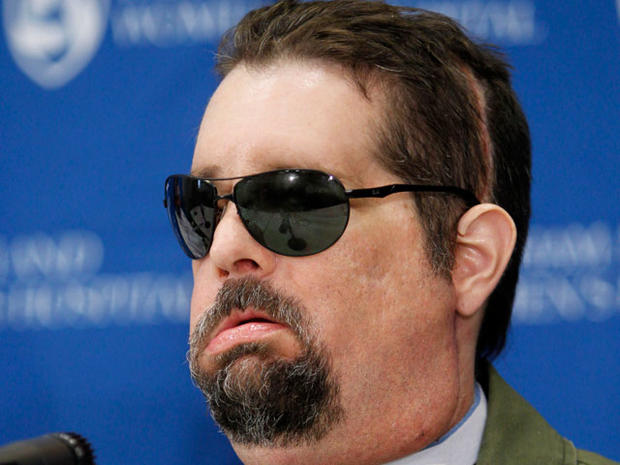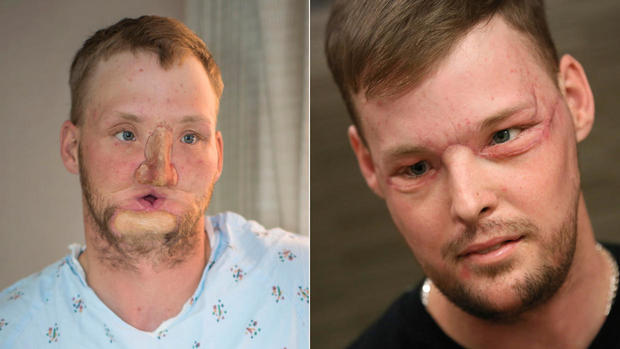First full face transplant recipient in U.S., Dallas Wiens, smiles again
(CBS/AP) What's the first American to get a full face transplant doing these days? Smiling.
Ten months after his operation, 25-year-old Dallas Wiens is recovering the ability to express himself. The Fort Worth man, along with a handful of other patients, is helping to make the case that face transplants should be more widely available.
PICTURES - 7 amazing face transplants (GRAPHIC IMAGES)
"The ability to smile and to show emotion on my face, even unintentionally, is such a natural thing," Wiens told the Dallas Morning News. "Having a new face has changed me dramatically."
Wiens' face was burned off in 2008 when his head touched a high-voltage power line while he was standing in an elevated cherry picker. He was also blinded and has not recovered his sight.
After more than two dozen surgeries, Wiens was still left with a featureless face. Until the transplant. Now, he says, "I don't look much different than anybody else."
Wiens case, and those of two others, were the subject of a study published last month in The New England Journal of Medicine, HealthPopreported. The procedure can correct "severe deformities in a single operation" rather than years of reconstructive surgery, according to the study.
The Department of Defense funded the transplants though a $3.4 million grant with the hope of offering the procedures to wounded soldiers.
Wiens was the only patient of the first three surgeries done in the U.S. who did not suffer an acute rejection of the transplant within the first six months, though all suffered infections.
The first full face transplant was performed in France in 2005. Since then, 18 patients have shown "promising results," the study said.
Before the first operation, people expressed concerns that the donor's facial identity would be transferred to the recipient. "It is our subjective opinion, as well as that of two of the donor families, that the patients do not look like their donors," the study concluded.
What else can Wiens do again? Thanks to physical therapy, he can control his lips to drink from a glass. And he has regained his sense of smell.
He has had to return to Brigham and Women's Hospital in Boston a couple times for adjustments to make the face fit more snugly.
"To undergo a face transplant and regain normalcy allows me to do whatever I want to do," he said. "It's a journey that I've just started."

